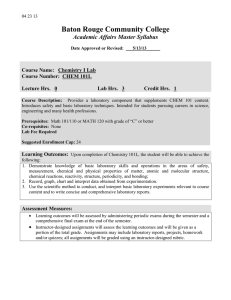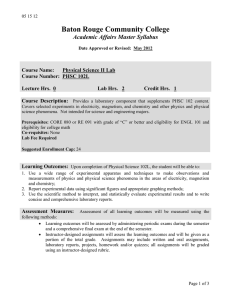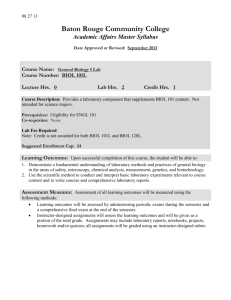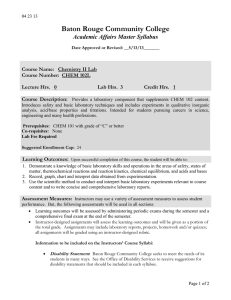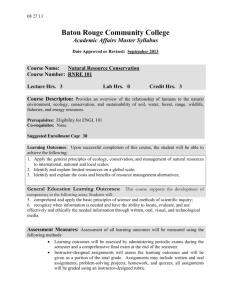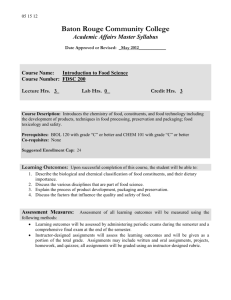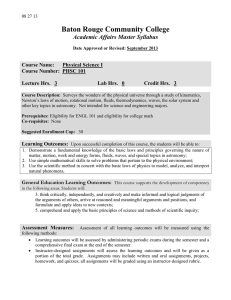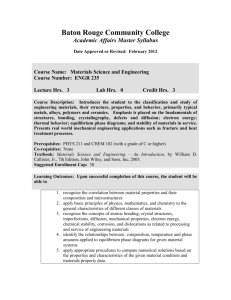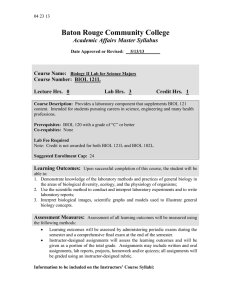PHSC 101L_MS
advertisement
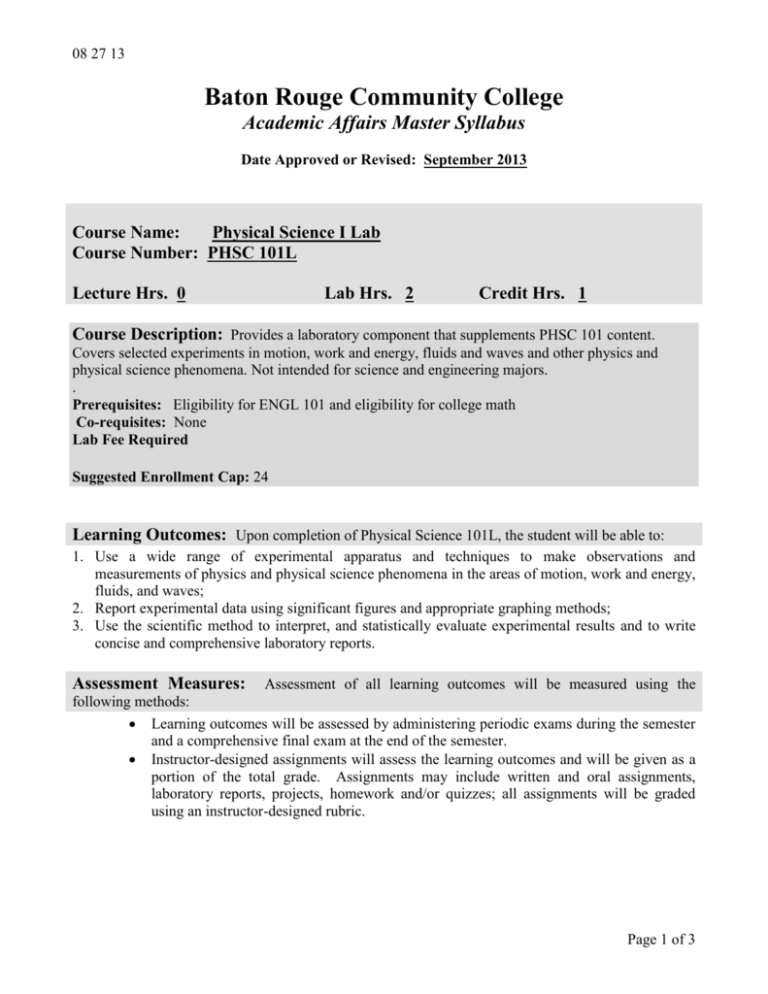
08 27 13 Baton Rouge Community College Academic Affairs Master Syllabus Date Approved or Revised: September 2013 Course Name: Physical Science I Lab Course Number: PHSC 101L Lecture Hrs. 0 Lab Hrs. 2 Credit Hrs. 1 Course Description: Provides a laboratory component that supplements PHSC 101 content. Covers selected experiments in motion, work and energy, fluids and waves and other physics and physical science phenomena. Not intended for science and engineering majors. . Prerequisites: Eligibility for ENGL 101 and eligibility for college math Co-requisites: None Lab Fee Required Suggested Enrollment Cap: 24 Learning Outcomes: Upon completion of Physical Science 101L, the student will be able to: 1. Use a wide range of experimental apparatus and techniques to make observations and measurements of physics and physical science phenomena in the areas of motion, work and energy, fluids, and waves; 2. Report experimental data using significant figures and appropriate graphing methods; 3. Use the scientific method to interpret, and statistically evaluate experimental results and to write concise and comprehensive laboratory reports. Assessment Measures: Assessment of all learning outcomes will be measured using the following methods: Learning outcomes will be assessed by administering periodic exams during the semester and a comprehensive final exam at the end of the semester. Instructor-designed assignments will assess the learning outcomes and will be given as a portion of the total grade. Assignments may include written and oral assignments, laboratory reports, projects, homework and/or quizzes; all assignments will be graded using an instructor-designed rubric. Page 1 of 3 08 27 13 Information to be included on the Instructors’ Course Syllabi: Disability Statement: Baton Rouge Community College seeks to meet the needs of its students in many ways. See the Office of Disability Services to receive suggestions for disability statements that should be included in each syllabus. Grading: The College grading policy should be included in the course syllabus. Any special practices should also go here. This should include the instructor’s and/or the department’s policy for make-up work. For example in a speech course, “Speeches not given on due date will receive no grade higher than a sixty” or “Make-up work will not be accepted after the last day of class.” Attendance Policy: Include the overall attendance policy of the college. Instructors may want to add additional information in individual syllabi to meet the needs of their courses. General Policies: Instructors’ policy on the use of things such as beepers and cell phones and/or hand held programmable calculators should be covered in this section. Cheating and Plagiarism: This must be included in all syllabi and should include the penalties for incidents in a given class. Students should have a clear idea of what constitutes cheating in a given course. Safety Concerns: In some programs this may be a major issue. For example, “No student will be allowed in the safety lab without safety glasses.” General statements such as, “Items that may be harmful to one’s self or others should not be brought to class.” Library/ Learning Resources: Since the development of the total person is part of our mission, assignments in the library and/or the Learning Resources Center should be included to assist students in enhancing skills and in using resources. Students should be encouraged to use the library for reading enjoyment as part of lifelong learning. Expanded Course Outline: I. II. III. Measurement A. Experimental Error B. Graphing C. Length Measurement D. Density Measurement Vector Motion A. Free fall B. Vector Addition-Force Table C. Vector Addition-Graphical Momentum and Energy A. Inertial Balance Page 2 of 3 08 27 13 IV. V. VI. B. Center of Gravity and Torque C. Your Horsepower Wave Properties A. Standing Waves in a String Motion A. Uniformly accelerated motion-Atwood Machine B. The Pendulum Specific Heat and Calorimetry Page 3 of 3
